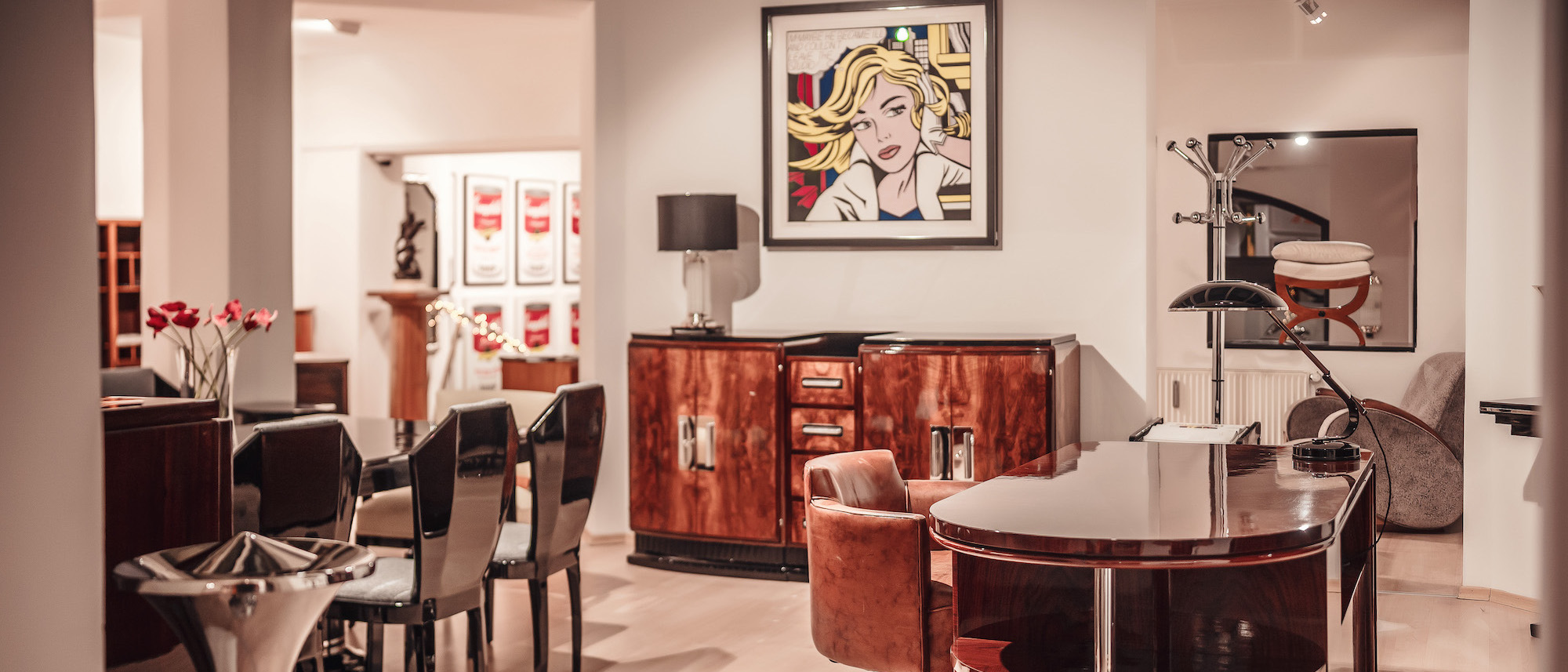COLONEUM Antik was founded by Alwin Homeier with a focus on Biedermeier and Empire furniture – but has since grown to encompass Art Deco, Bauhaus, Mid-Century Modern, and Pop Art. The result? A one-stop shop for all things design.
Naming a new venture is a serious business. While many founders create eponymous galleries and dealerships, others search for a moniker that evokes their values and aspirations. When German entrepreneur Alwin Homeier decided to found an antiques business in 1989, he looked to he and his wife’s favourite cities for inspiration. Coining a neologism that combines the Colosseum in Rome and the world’s oldest auction house, the Dorotheum, in Vienna, he came up with COLONEUM Antik. More than three decades later, COLONEUM Antik is still going strong, and Alwin has been joined by his son David.
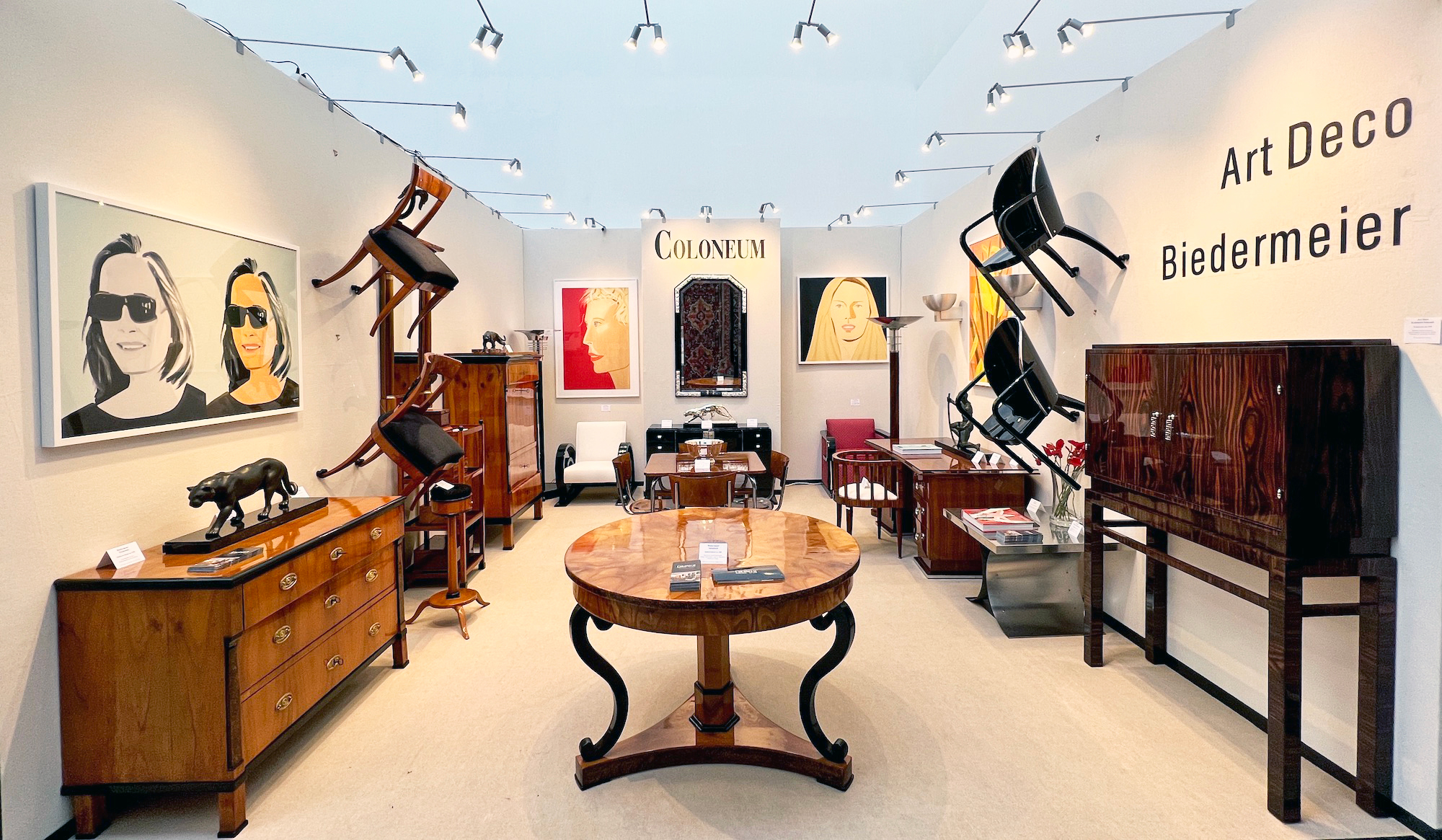
The idea to found the dealership was born when Alwin decided to sell an antique secretaire he had inherited. He soon realised there was a huge amount of interest in antiques in Germany, and saw the potential to create his own business. “My parents had a deep interest in antiques and loved unadorned pieces with clean lines,” says David. The couple soon found themselves specialising in Neoclassical pieces, particularly Empire- and Biedermeier-style furniture from South Germany and Austria dating from 1800 to 1835.
We just buy what we like. We go for high-quality but affordable pieces that are beautiful.
David Homeier, COLONEUM Antik
The couple set up the gallery in the medieval Old Town of Regensburg, a Bavarian city on the Danube River in Germany. “We always had a lot of furniture everywhere,” recalls David. “When good pieces came in, we put them in our living room for a while. Then, they would get sold and we would change our interior – we learned a lot about arranging interiors both at home and in the store!”
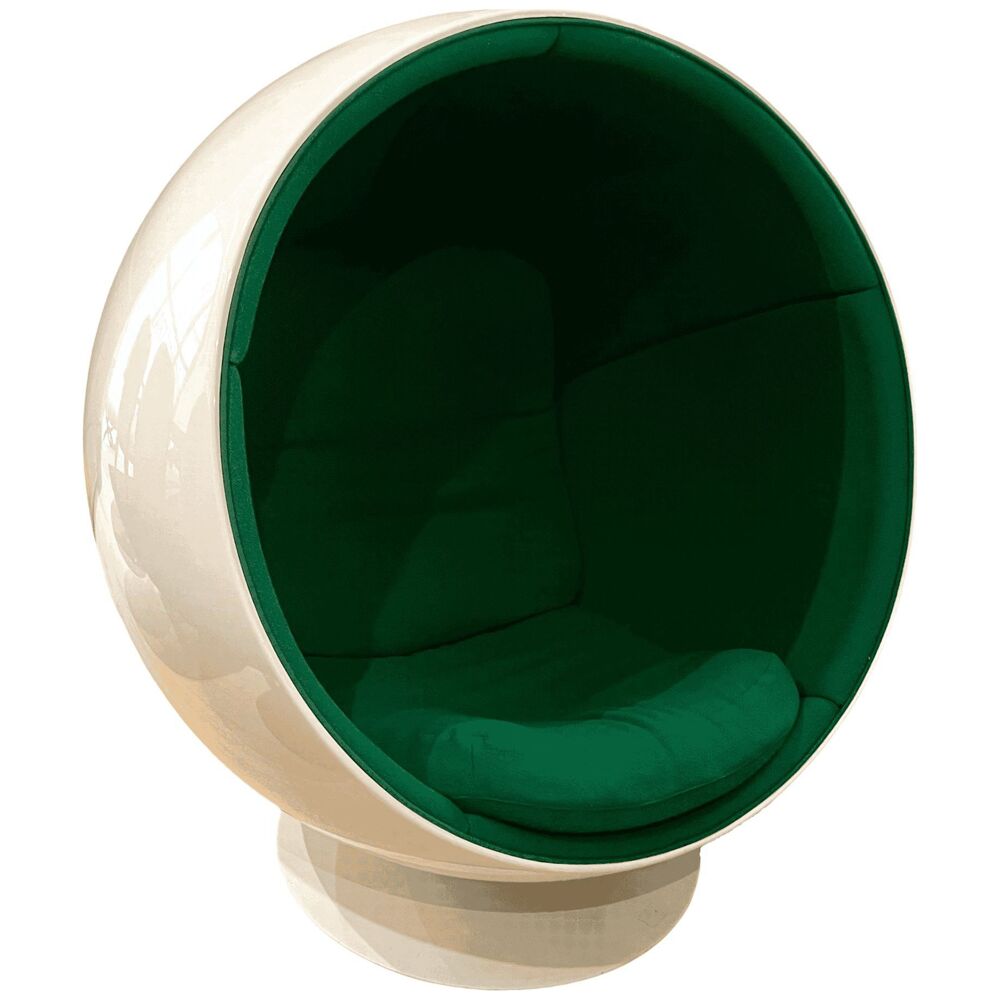
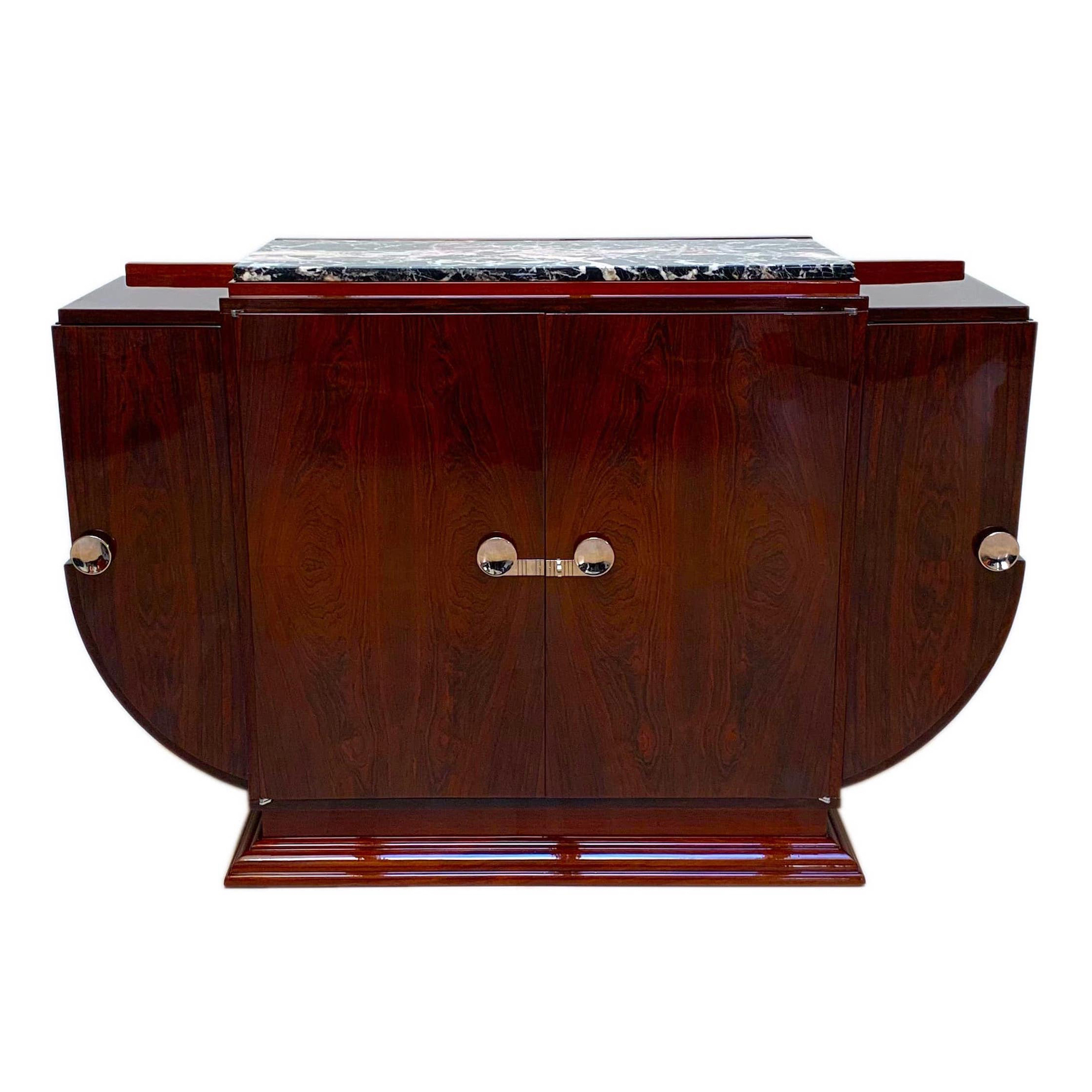
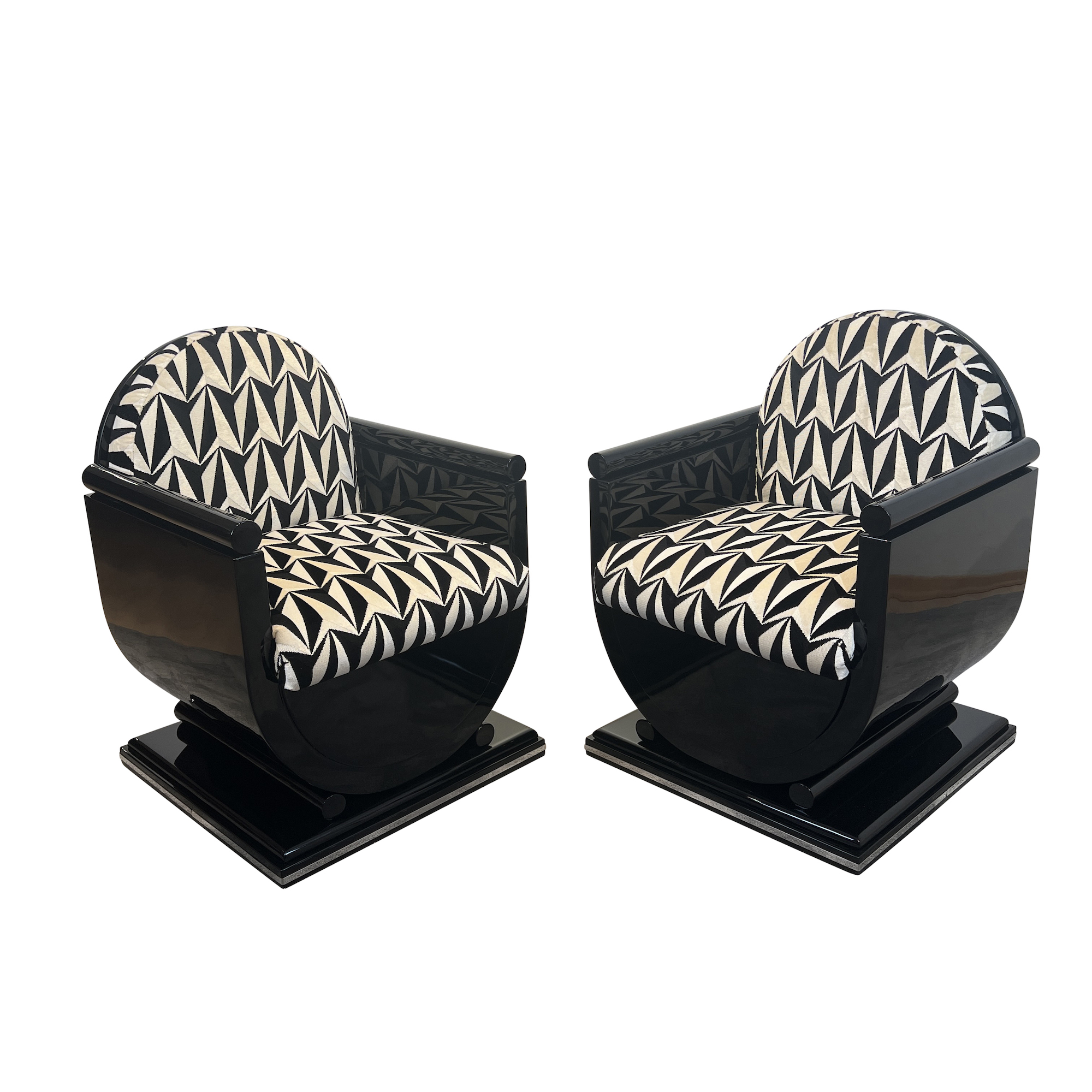
Today, the 500-square-metre showroom is spread over two Jugendstil (Art Nouveau) houses from 1902 that boast bright, white rooms with high ceilings and have been renovated in a contemporary style that creates a dynamic juxtaposition with the antique furniture. “We want people to be able to see that they can place antiques in modern rooms and that they work well with other pieces,” explains David.
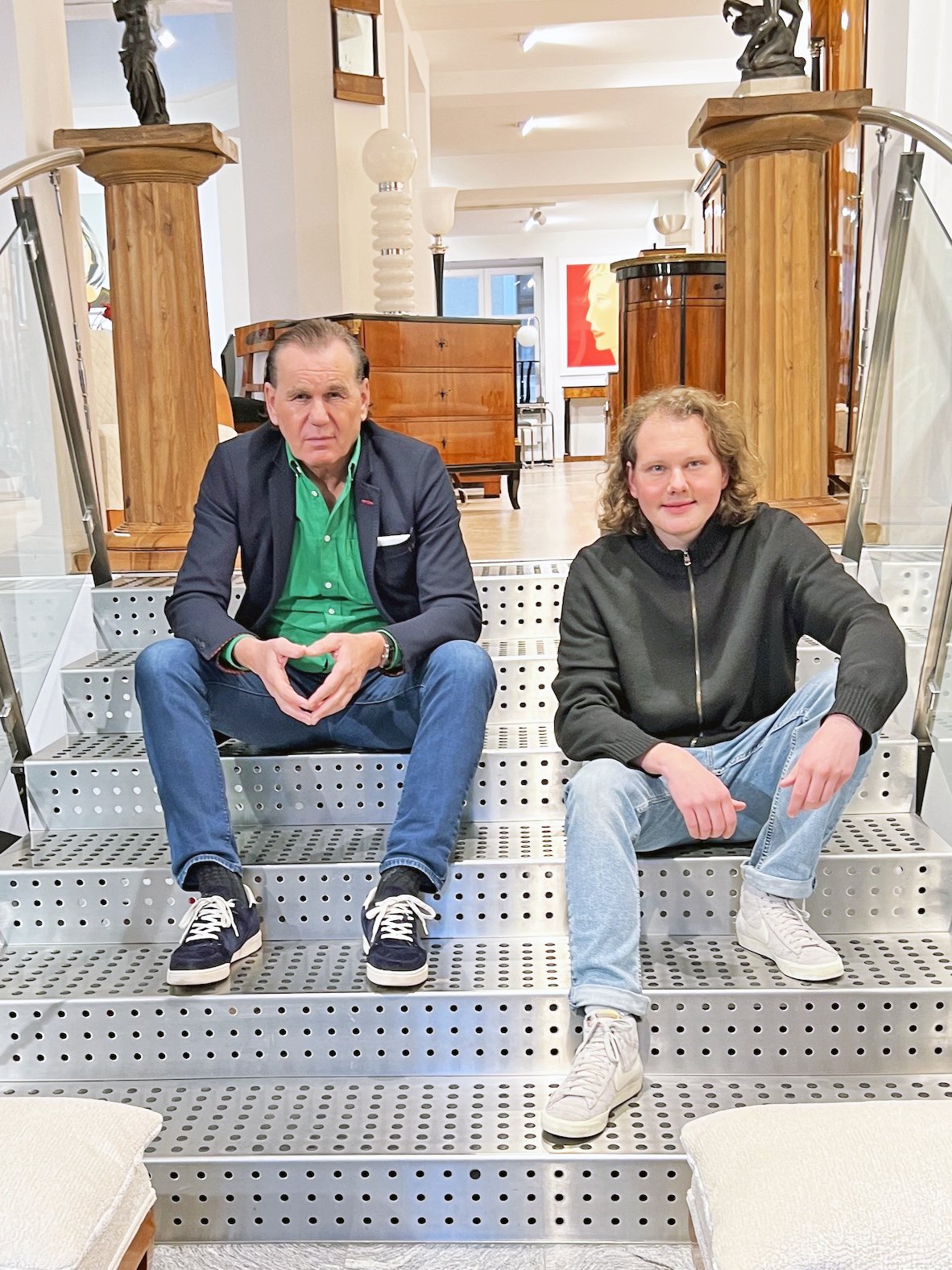
While COLONEUM Antik has been a presence in the world of antiques for more than 30 years, the collection itself has evolved. In the early 2000s, Alwin began to add Art Deco pieces to the portfolio, leaning towards the straighter, more modern lines of pieces from the 1930s. “The style is a great fit with Biedermeier and Empire furniture,” says David. “It’s all about timeless, high-quality pieces with straight lines, beautiful veneer patterns, and precious, high-gloss polishes and lacquers.”
Following the success of this expansion, the family began to introduce more contemporary furniture – think Bauhaus and steel tube furniture from Germany, Austria, and the Czech Republic, and exclusive design pieces from the 1950s through to the 1980s.
Most of the older furniture is unattributed – which is typical for these earlier periods, in which master carpenters would craft one-of-a-kind pieces. The design classics, meanwhile, run the gamut of household names, from Eero Aarnio, Mies van der Rohe, the Eames, and Le Corbusier, to Hans Wegner, Erich Diekmann, and Mauser Werke. “We just buy what we like,” says David. “We go for high-quality but affordable pieces that are beautiful.”
Over the years, there have been some particularly special pieces, however. Alwin recalls a large Biedermeier armoire with convex doors and six cannelured (fluted) columns in walnut veneer. “The one-of-a-kind piece was of extraordinarily high quality and very rare,” he says. Other memorable work includes showcase pieces by Austrian creative Josef Danhauser, one of the most noteworthy artists and designers of the Biedermeier period, and exquisite Austrian Empire pieces, which are increasingly rare.
Most of the furniture is sourced from private homes in Germany, Austria, and France – and the gallery’s decades-long history means that many pieces are now offered directly. Vintage pieces are generally cleaned and polished, while the antiques are fully restored in the COLONEUM Antik workshop, which boasts the talent of several in-house carpenters, lacquer experts, and polishers.
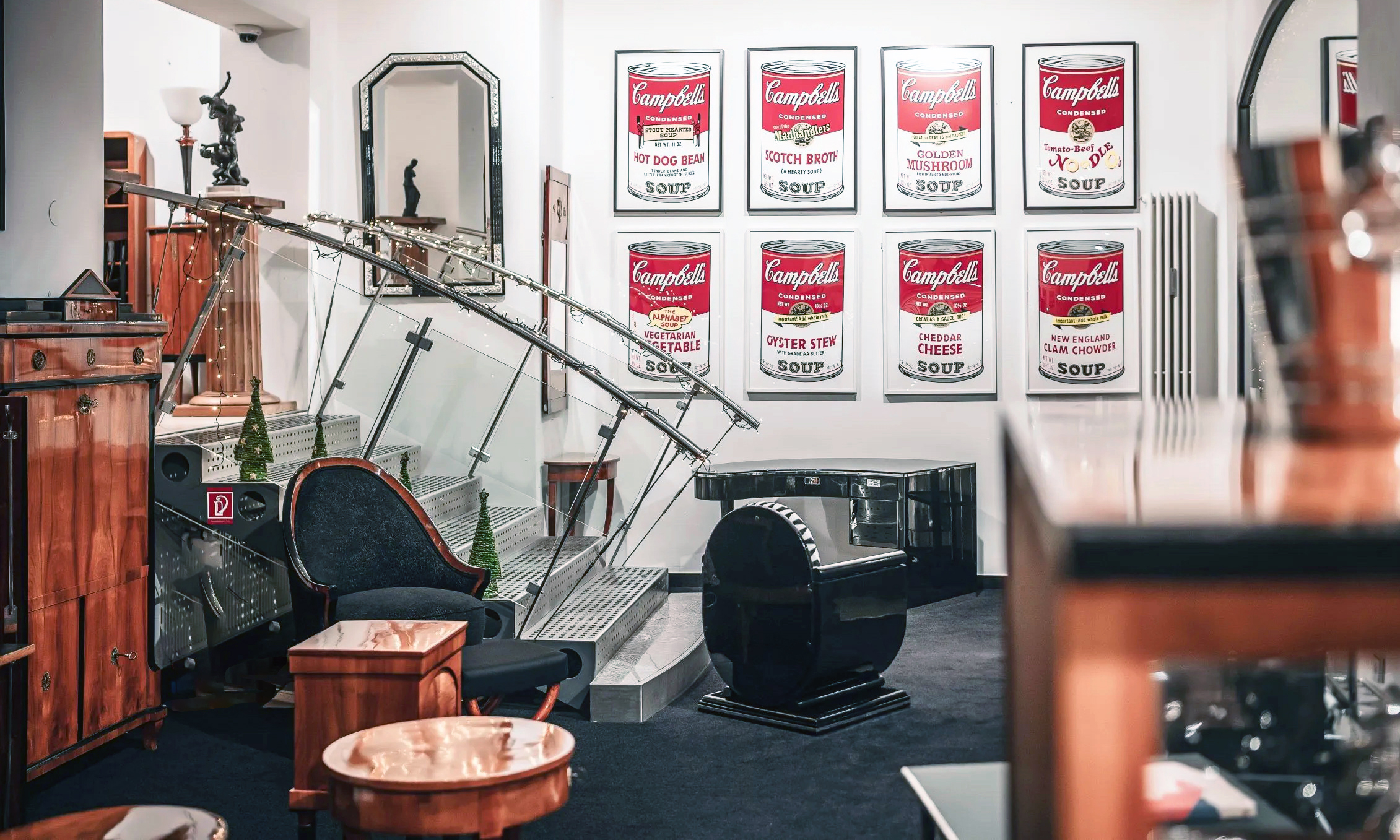
Older furniture is restored to its former glory, with particular focus on retaining the original design intent and traditional methods. Shellac finishes, for example, are redone by hand from the bottom up; while Art Deco and Bauhaus furniture is completely dismantled and every piece is relacquered and galvanised before being reassembled.
“My father always says the most important thing is to have a good eye,” says David. “You need to be able to look at an unrestored piece and see its potential – even when you can’t tell what kind of wood it is made from.”
In more recent years, COLONEUM Antik has begun to have a presence at design fairs, including the WIKAM art and antiques fair in Vienna, and Kunst & Antiquitäten München in Munich. To complement the furniture, the gallery borrowed some Pop Art-style artwork. “It ignited our passion,” reveals David. And so, alongside their diverse range of furniture, COLONEUM Antik has recently started dealing in Pop Art prints from the likes of Alex Katz, Andy Warhol, and Roy Liechtenstein, creating a “fourth pillar” for the business.
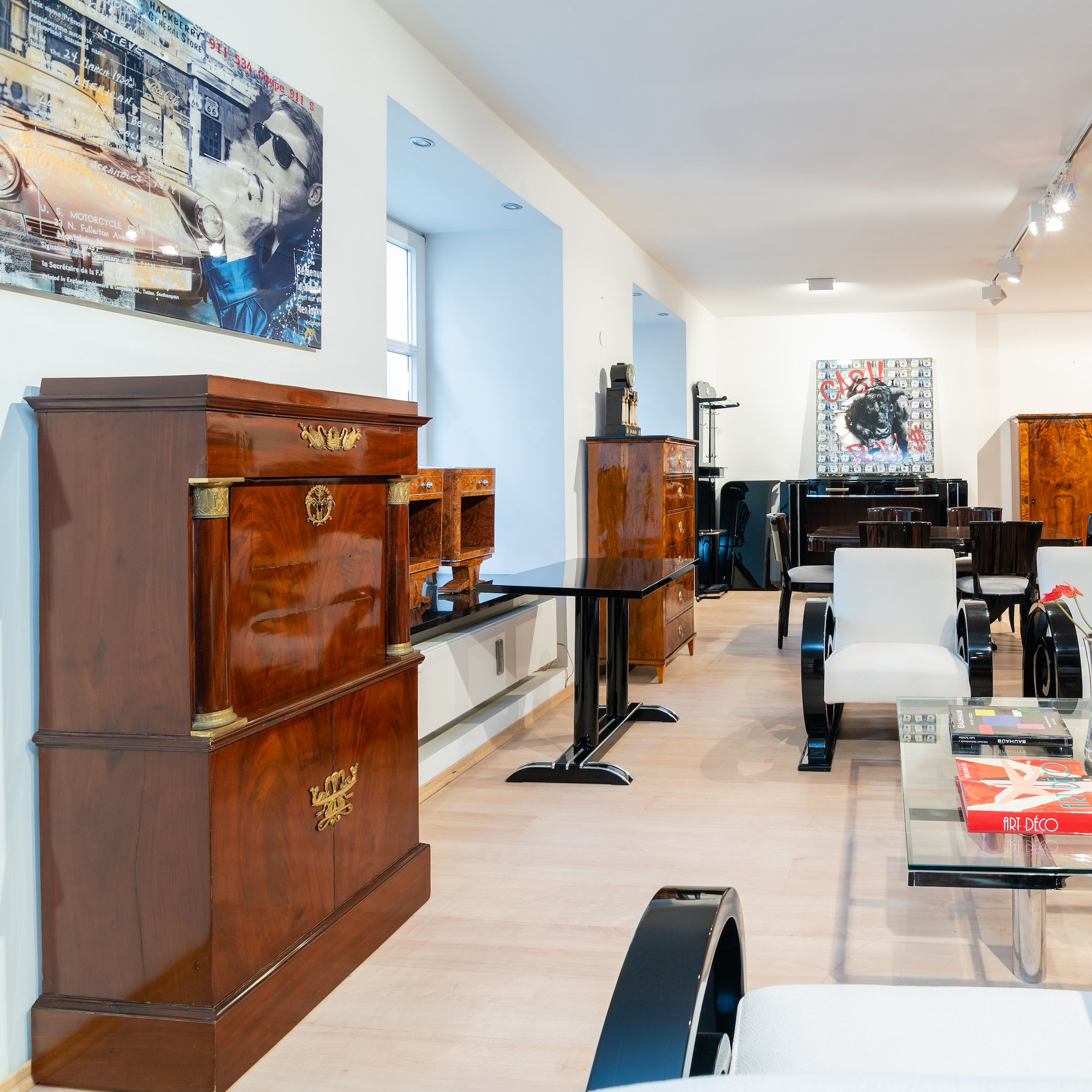
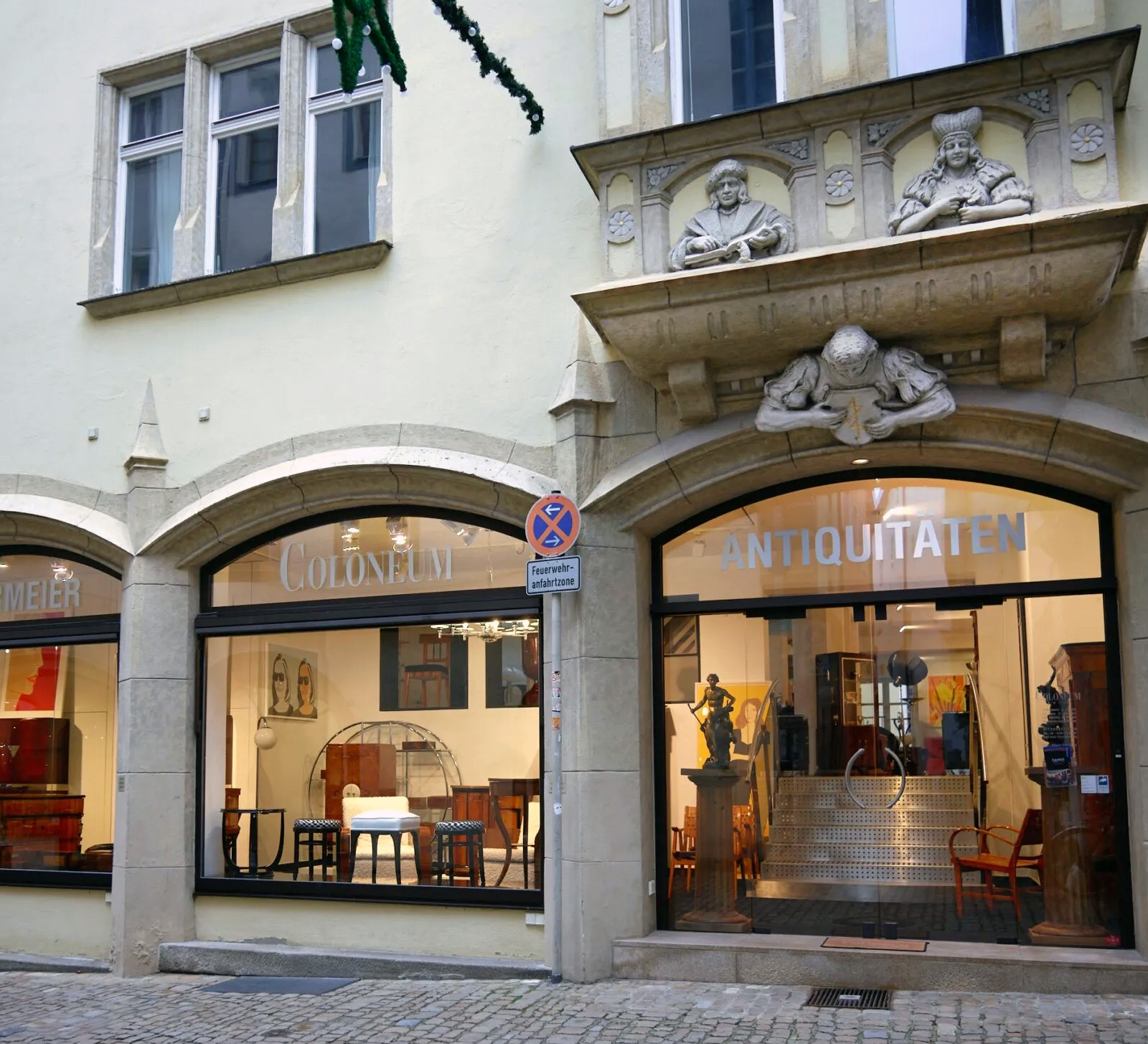
It’s an eclectic approach that works well, and is epitomised by the settings created in the showroom. Eames loungers and Le Corbusier chairs, for example, might be paired with Eero Aarnio’s iconic Space Age Ball Chair, with an imposing Biedermeier piece to ground the arrangement. An Art Deco lamp and a bold Pop Art print bring it to life. “We put everything together to show people that it works,” says David.
As the business has grown, so too has its client base, and Alwin takes particular pleasure in seeing the pieces he has sourced furnishing prominent homes and important buildings around the world. Most customers are private clients from Europe and North America – with a majority in Germany and Austria – buying furniture for their personal homes or offices, and interior designers working with clients around the world. And, as online sales increase, COLONEUM Antik has sent pieces to almost the entire western world – an impressive trajectory they would like to see continue.
“Nobody knows what the future holds,” says David. “We want to continue to be our best in our specialised fields, expand our online business, and participate in more international fairs – and that needs experience and imagination.”
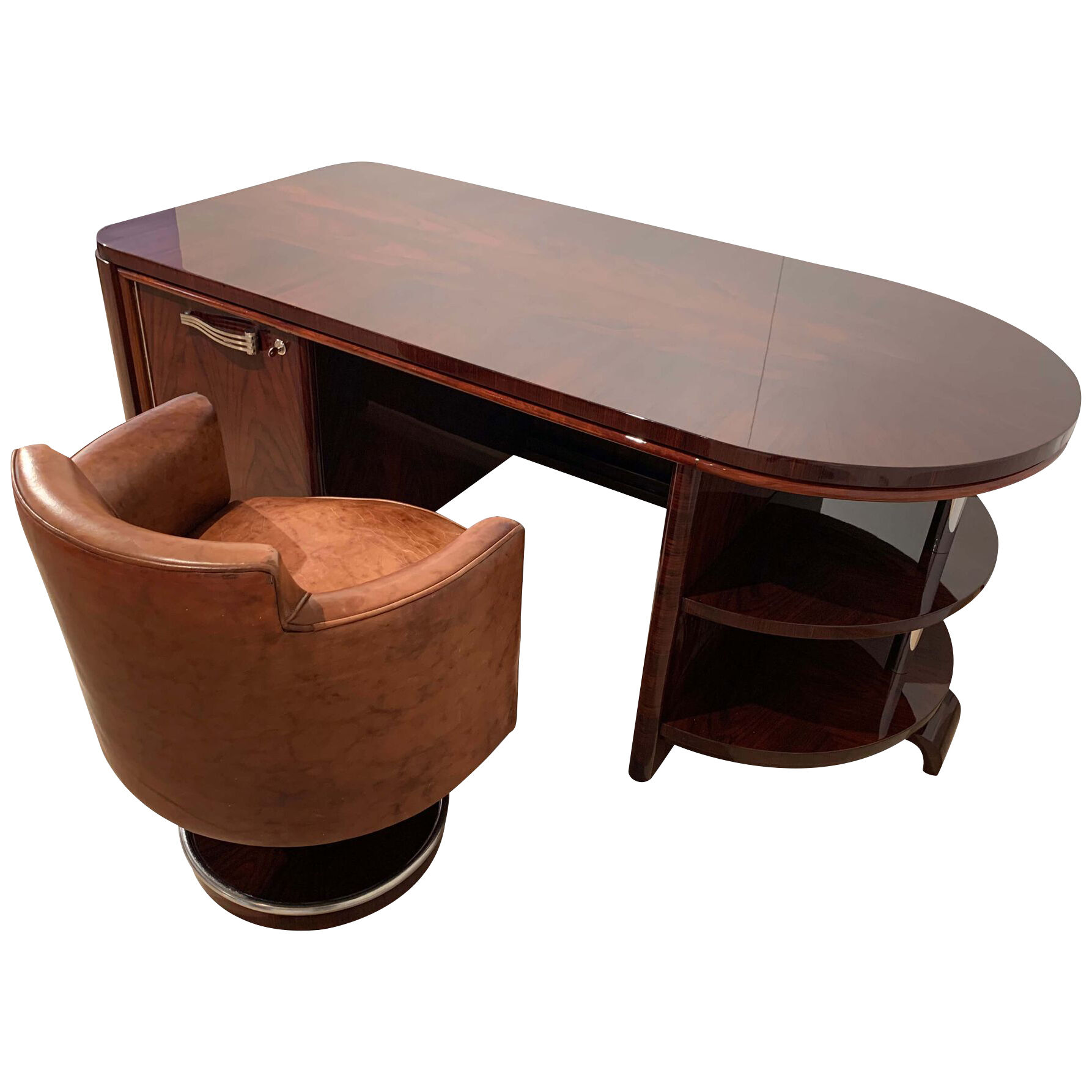
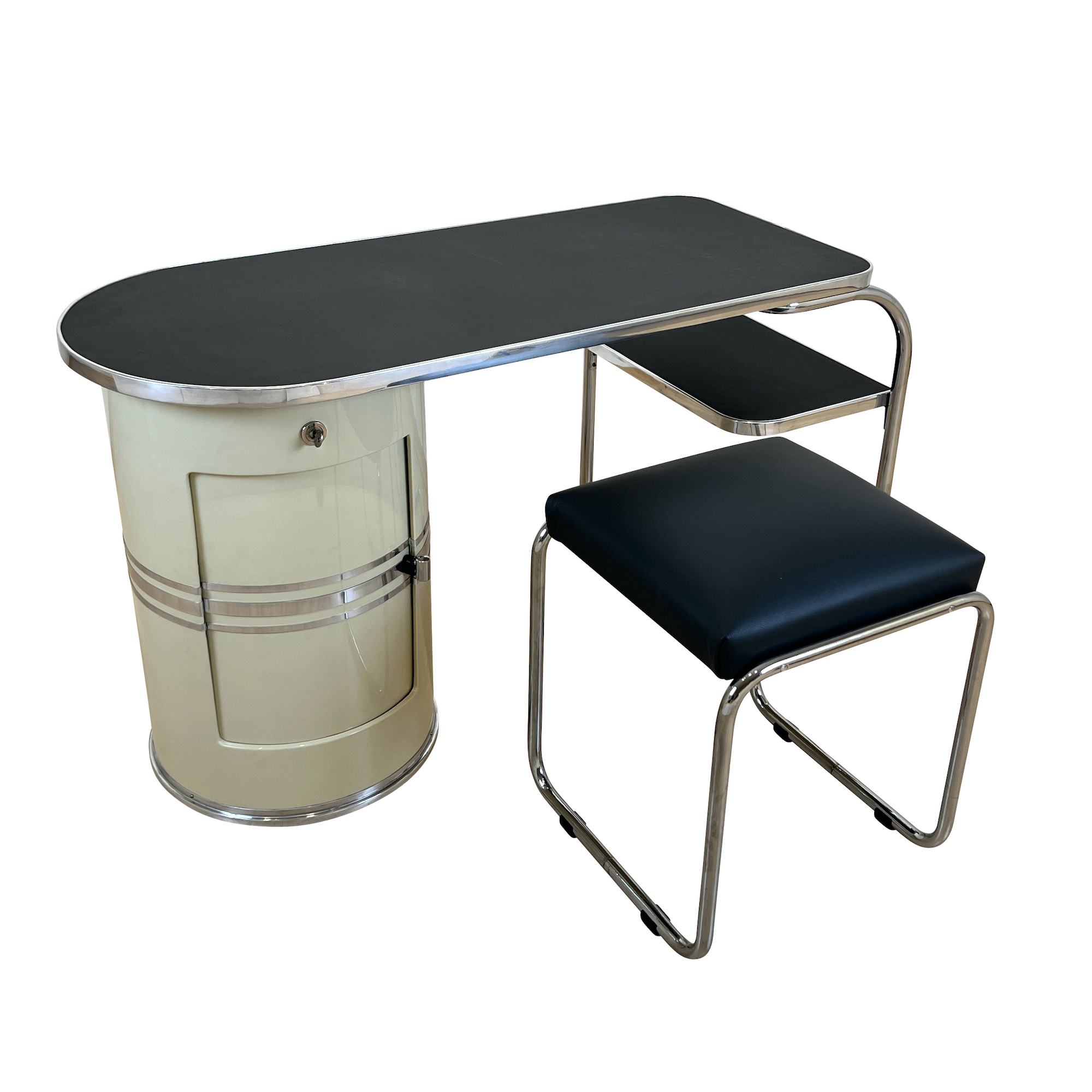
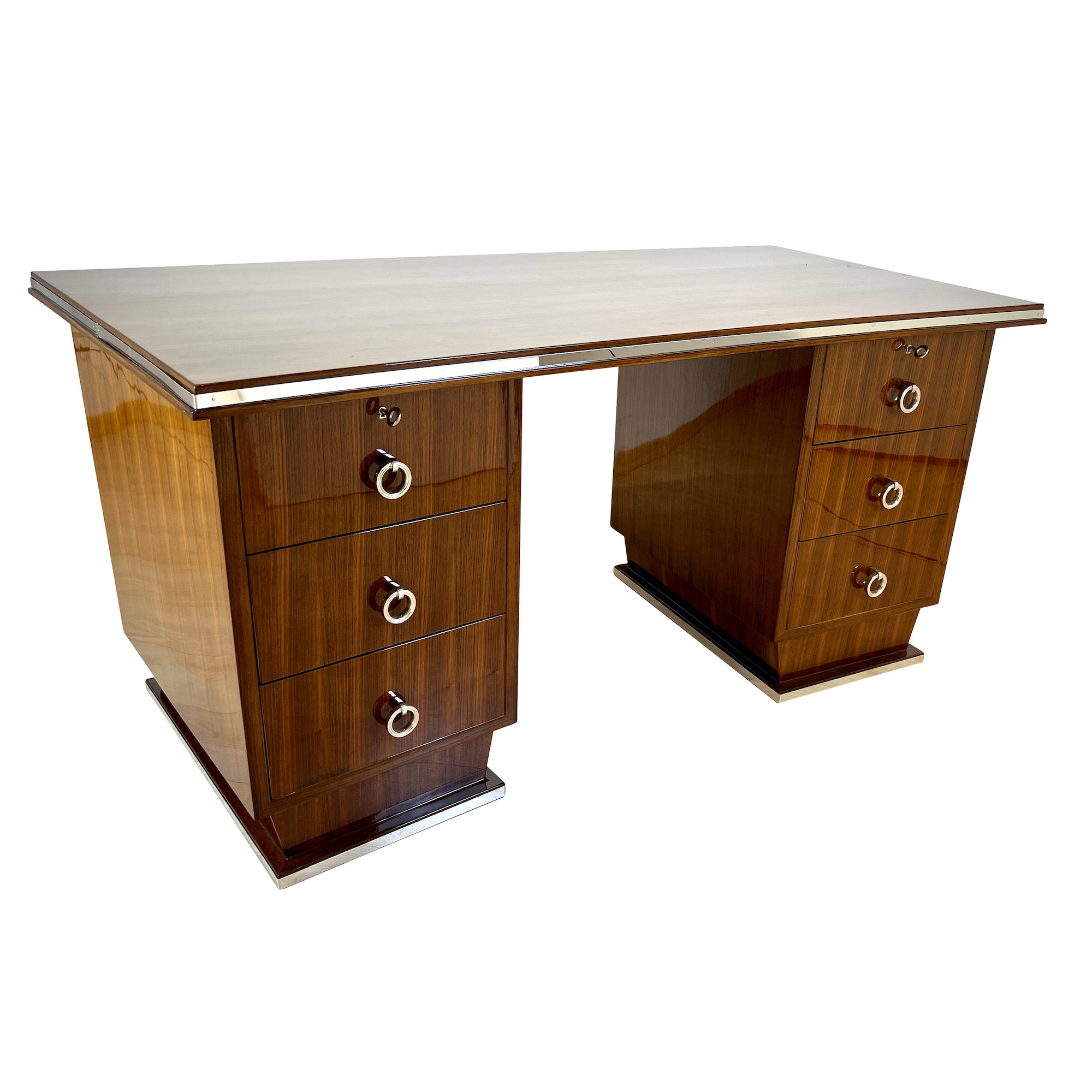
Read more: Design | Furniture | Interiors | Dealers | Interior Designers | Art Deco | Mid-Century | Effetto



